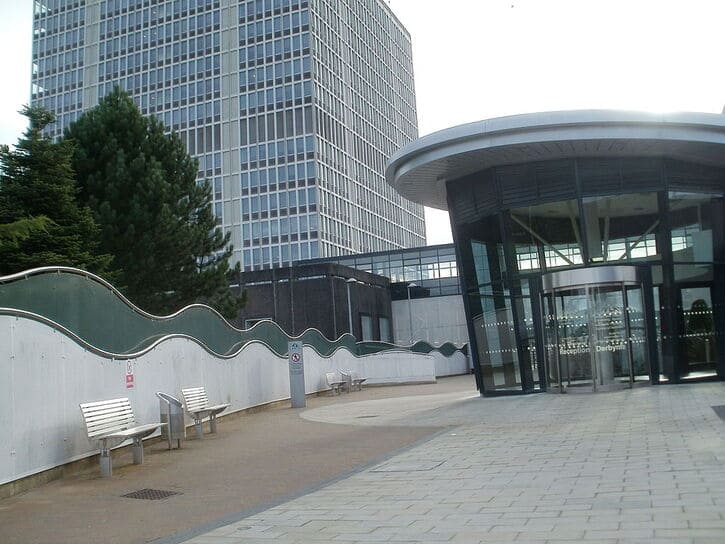Scrapping your vehicle can seem daunting, especially with all the rules and regulations. You might wonder if you need to notify the Driver and Vehicle Licensing Agency (DVLA) before you scrap your car. Let’s explore what you need to know.
Understanding the DVLA’s Role
The DVLA is the authority in charge of maintaining a database of drivers and vehicles in the UK. When you scrap your car, the DVLA needs to update their records to reflect that your vehicle is no longer on the road. This ensures you won’t be held responsible for road tax or any other liabilities linked to the vehicle.
What is Scrapping a Vehicle?
Scrapping a vehicle means recycling it because it’s no longer usable or safe to drive. Often, vehicles are scrapped due to age, damage, or because repairs are too costly. Scrapping involves dismantling the vehicle, salvaging usable parts, and properly disposing of the rest.
Why Notify the DVLA?
You might think scrapping your car is the end of your responsibilities. However, if the DVLA isn’t notified, they’ll still consider you the vehicle’s owner. This can lead to unwanted consequences like being charged for road tax or fined for not insuring a vehicle that no longer exists.
How to Notify the DVLA
1. Complete Section 9 of the V5C
The first step is to fill out section 9 of the V5C logbook, which is the yellow section. This part of the logbook notifies the DVLA that you’ve sold or transferred the vehicle to a scrap dealer. After completing it, send it to the DVLA.
2. Receive a Certificate of Destruction (CoD)
Once the vehicle is scrapped, you should receive a Certificate of Destruction (CoD) from the Authorised Treatment Facility (ATF). This certificate is proof that your vehicle has been disposed of correctly. Make sure to keep this document safe.
3. Send the Rest of the V5C to the scrap yard or ATF
Hand over the rest of the V5C logbook to the scrap yeard or ATF. They’ll take care of the necessary paperwork and notify the DVLA that the vehicle has been scrapped.
4. Confirm with the DVLA
After a few weeks, you should receive a confirmation letter from the DVLA. This letter confirms that they have updated their records. If you don’t get this letter, it’s wise to follow up to ensure everything is in order.
What If You Don’t Have a V5C Logbook?
If you don’t have the V5C logbook, you still need to inform the DVLA. Write a letter to them, including details like your vehicle registration number, make and model, the date of the sale, and the details of the ATF. The address to send this information to is:
DVLA Swansea SA99 1BD
Potential Penalties for Not Informing the DVLA
Not informing the DVLA can lead to penalties. For example, you could be fined £1,000 for failing to notify them that you’ve scrapped your vehicle. Plus, you might still be liable for road tax or other charges if their records show you as the vehicle’s owner.
Choosing an Authorised Treatment Facility (ATF)
Selecting a reputable ATF is crucial. Only ATFs can issue a CoD. An authorised facility ensures your vehicle is scrapped in an environmentally friendly manner. You can find a list of ATFs on the government website or by searching online.
Things to Consider Before Scrapping Your Vehicle
1. Salvageable Parts
Before scrapping, consider if any parts of your vehicle can be salvaged. Items like tyres, batteries, and even the engine might be reusable. Some people choose to sell these parts separately before scrapping the rest of the vehicle.
2. Vehicle Valuation
It’s a good idea to get a valuation of your vehicle. Even scrap cars have some value, and it helps to know what yours is worth. Some scrap yards might offer you a better deal than others. Shop around for the best price.
3. Paperwork
Ensure you have all the necessary paperwork in order. This includes your V5C logbook and, if applicable, any proof of sale for parts you’ve sold separately. Having everything organised makes the process smoother.
Environmental Considerations
Scrapping a vehicle in an authorised facility ensures that hazardous materials are disposed of properly. These facilities follow strict guidelines to minimise environmental impact. By choosing an ATF, you’re doing your part to protect the environment.
Alternatives to Scrapping
If your vehicle is still in relatively good condition, consider alternatives to scrapping. You might sell it to a private buyer or donate it to charity. Some organisations accept old cars, fix them up, and donate them to people in need. Scrap My Car Company also buy old cars so get in touch if you feel your car isn’t ready for the scrap heap just yet.
Final words…
In summary, it’s essential to notify the DVLA before scrapping your vehicle. Doing so ensures you’re not held responsible for any future liabilities. Fill out the V5C logbook, send it to the DVLA, and choose an authorised treatment facility to handle the scrapping process. Remember, keeping your paperwork organised and following the correct steps can save you from potential fines and legal troubles.
Scrapping your vehicle might seem like a hassle, but with the right information and a bit of planning, you can handle it smoothly. Whether you’re scrapping an old banger or an accident-damaged car, notifying the DVLA is a crucial step in the process. Take the time to understand what’s involved, and you’ll find it’s not as complicated as it seems.
If you have any doubts, always seek advice or contact the DVLA directly. They’re there to help and can provide guidance tailored to your situation. By following the right steps, you can ensure your vehicle is scrapped properly, legally, and with minimal fuss.


